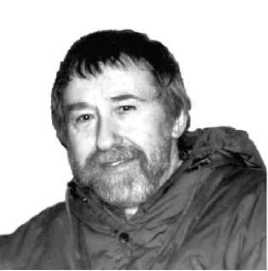TELOMERE, TELOMERASE, CANCER, AND AGING

Aleksei Matveevich Olovnikov, Guest Editor of this issue
To Our Readers:
This issue opens a new tradition of Biochemistry (Moscow). We will publish on a regular basis collections of concise review articles written by specialists working in various countries of the world on a certain "hot problem" that promises to become a growth point of biochemistry and related sciences. A Russian scientist whose outstanding contribution in this particular field of science and who is recognized by the international scientific community will be invited as Guest Editor. This approach will guarantee a high level of publications. In addition to pure reviews, these issues will include articles containing new hypotheses and dealing with debatable issues of the topic discussed.
We asked Aleksei Matveevich Olovnikov (Institute of Biochemical Physics, Russian Academy of Sciences, Moscow) to be the opener of this series. In 1971, Olovnikov noted that DNA polymerases cannot fully replicate the ends of linear templates and suggested that this phenomenon should lead to DNA shortening (through under-replication) in every cell division. He also considered certain means by which cells could cope with this problem. In particular, he postulated that a senseless nucleotide sequence, whose loss would produce no harm, could be added to DNA ends. It was only 14 years later that the idea formulated by Olovnikov was supported by experimental evidence. An enzyme called telomerase was discovered; it adds the hexanucleotide TTAGGG to the 3´ end of DNA.
The work of Olovnikov is a regretfully rare case when a brilliant idea of a Russian scientist was not forgotten, but survived. Although further development of this idea occurred in other countries rather than in Russia, the author's priority is recognized worldwide and has never been contested.
Because of the authority and respect in the scientific community, Olovnikov was able to gather a team of authors. Leonard Hayflick, an outstanding scientist; Thomas Cech, a Nobel Laureate; and several other biochemists, molecular biologists, and cell biologists known for their works on telomeres, telomerases, and related problems (including reverse transcription, carcinogenesis, aging, etc.) agreed to participate.
I hope that articles published in this issue will be of interest to the Russian and foreign scientific community. To facilitate access to these articles, the English version of this and certain other review issues of Biochemistry (Moscow) will be made available on the World-Wide Web at http://www.protein.bio.msu.su/biokhimiya long before the appearance of this journal in print.
V. Skulachev
Editor-in-Chief